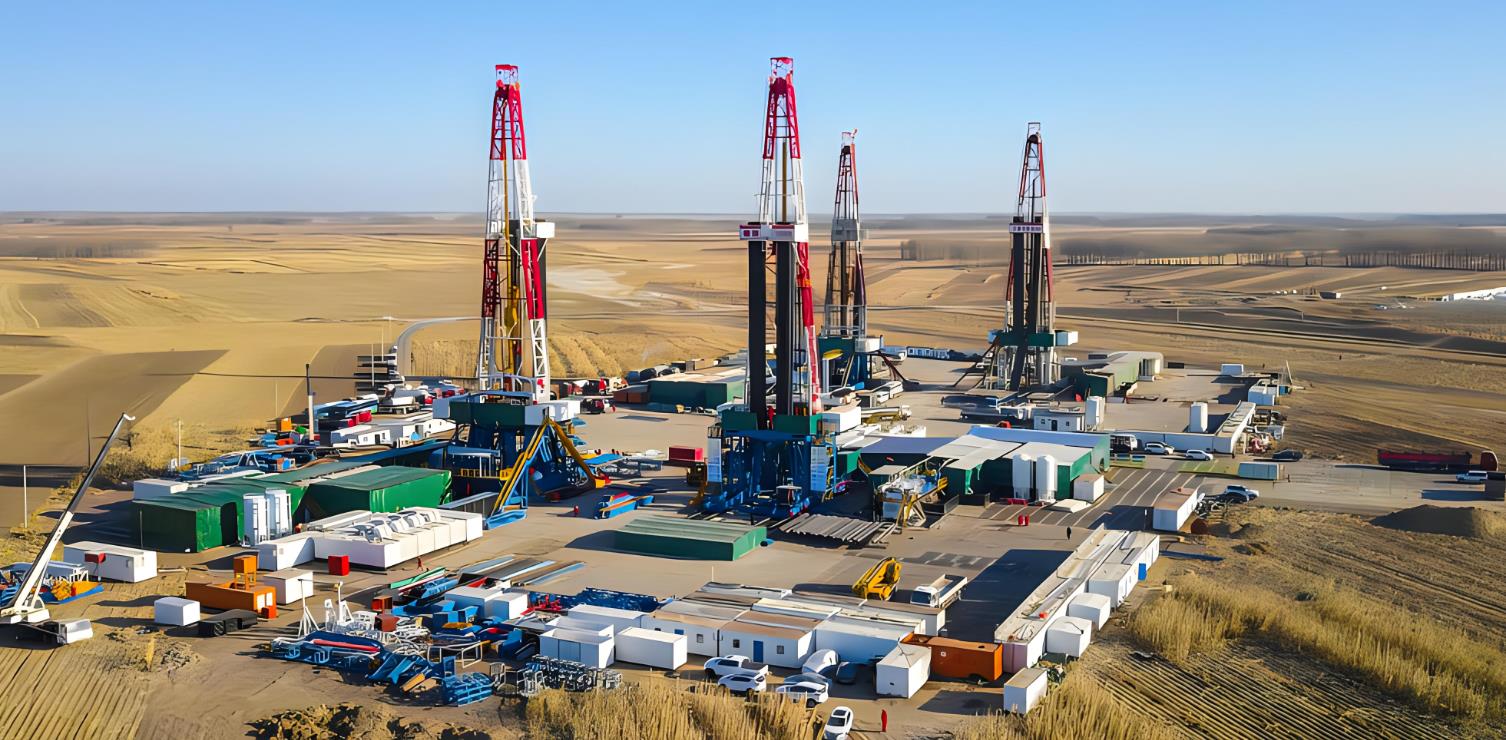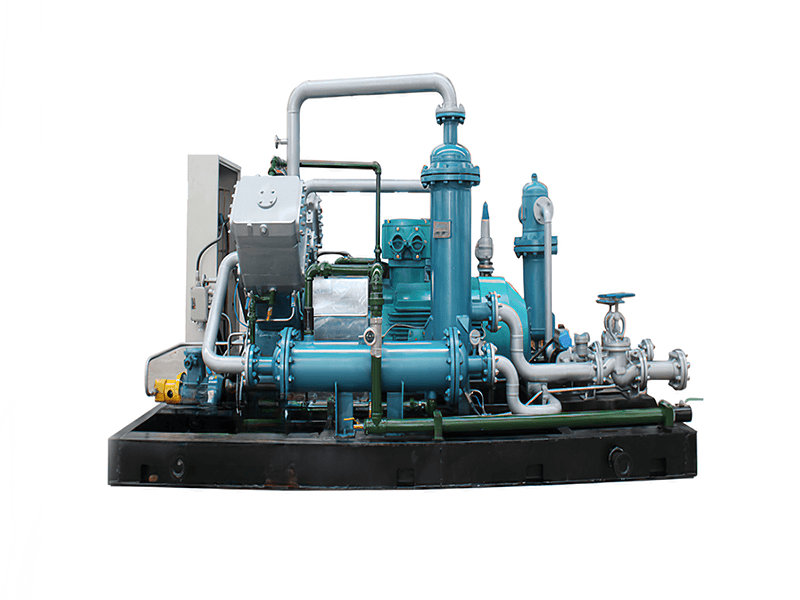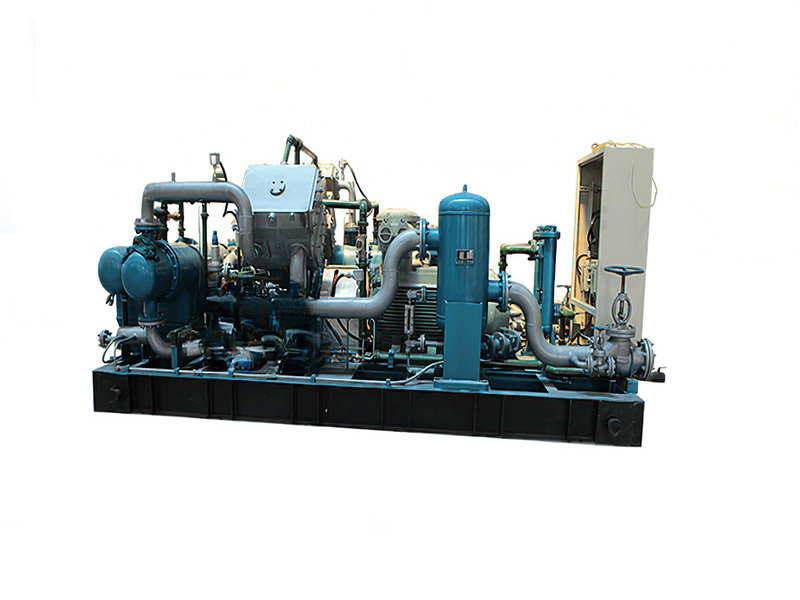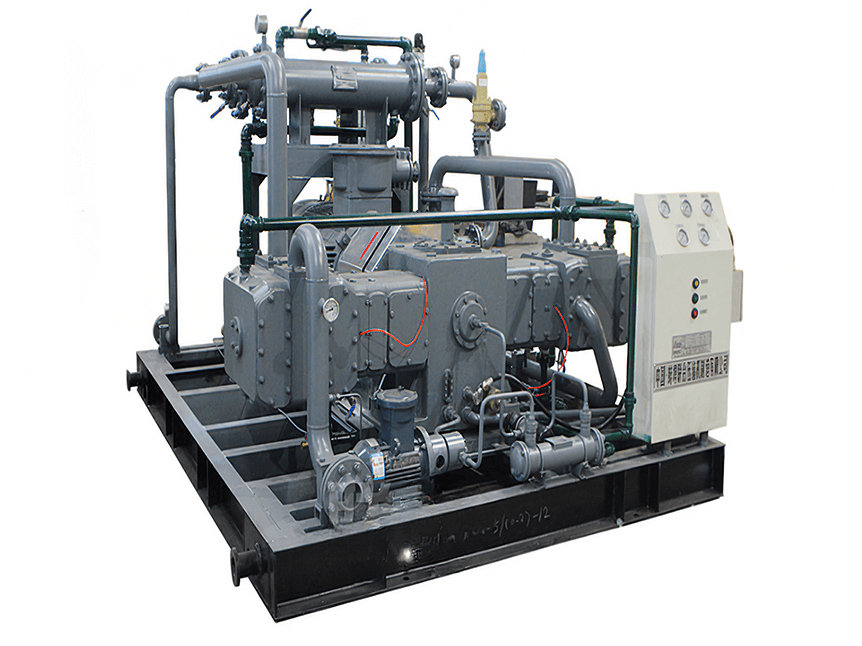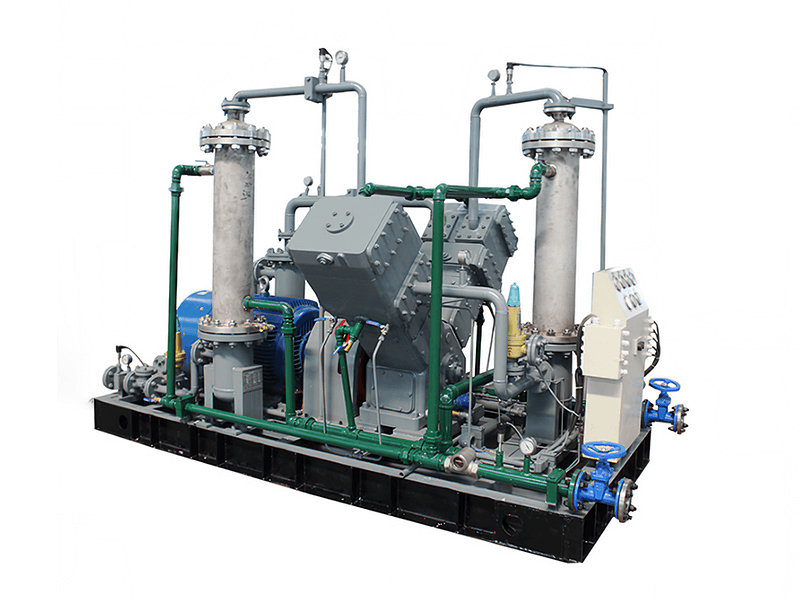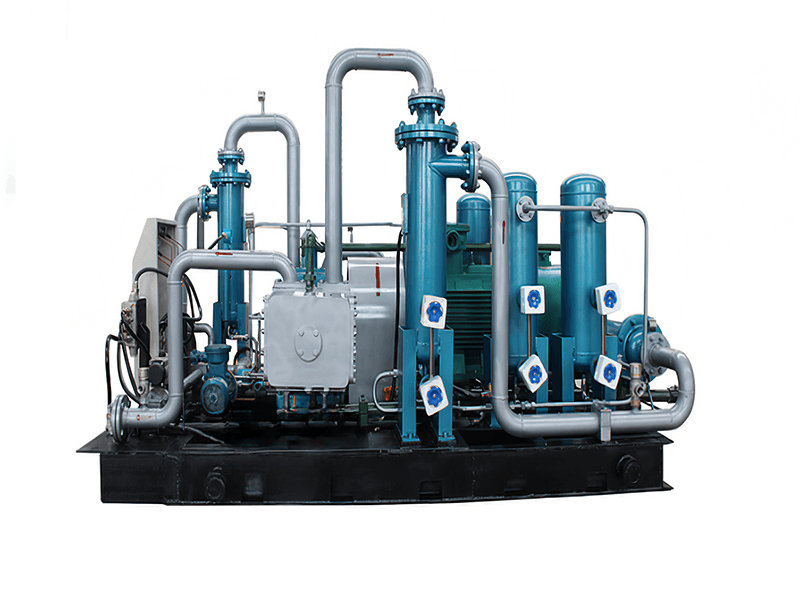A
mixed gas compressor is designed to handle a wide range of gas mixtures, depending on the specific application and requirements. Some common mixed gases that a mixed gas compressor can handle include:
1. Natural Gas: Natural gas is a mixture of hydrocarbon gases, primarily methane, along with varying amounts of ethane, propane, butane, and other hydrocarbons. Mixed gas compressors are commonly used to compress and transport natural gas through pipelines.
2. Air and Oxygen Mixtures: Mixed gas compressors can handle compressed air and oxygen mixtures, which are used in various industrial processes such as combustion, oxidation, and medical applications.
3. Hydrogen and Fuel Gas Mixtures: Mixed gas compressors are used to handle mixtures containing hydrogen and fuel gases like natural gas, propane, or butane. These mixtures are commonly used in power generation, chemical processes, and refining operations.
4. Refrigerant Mixtures: In refrigeration and air conditioning systems, mixed gas compressors handle refrigerant mixtures. These mixtures can include hydrofluorocarbons (HFCs), hydrochlorofluorocarbons (HCFCs), or other refrigerant blends, depending on the specific cooling requirements.
5. Biogas: Biogas is a mixture of gases produced from the anaerobic digestion of organic matter, such as sewage, agricultural waste, or landfill gas. Mixed gas compressors are used to handle and compress biogas for storage, transportation, or utilization purposes.
6. Calibration Gas Mixtures: Mixed gas compressors can handle various calibration gas mixtures used for calibrating gas sensors, analytical instruments, and emission testing equipment. These mixtures are carefully formulated to simulate specific gas concentrations for accurate calibration.
7. Specialty Gas Mixtures: Mixed gas compressors can handle specialty gas mixtures used in specific industries and applications. For example, gas mixtures used in semiconductor manufacturing, laser applications, or environmental simulation require specialized handling and compression.
8. Ammonia and Air Mixtures: Mixed gas compressors are used to handle mixtures of ammonia and air, which are commonly used in refrigeration systems, industrial processes, and chemical manufacturing.
9. Carbon Dioxide (CO2) and Nitrogen Mixtures: Compressors are used to handle mixtures of carbon dioxide and nitrogen, which find applications in food and beverage industries, such as carbonation processes, packaging, and inert gas blanketing.
10. Syngas: Syngas, also known as synthesis gas, is a mixture of carbon monoxide (CO) and hydrogen (H2). Mixed gas compressors are utilized to handle syngas in various applications, including fuel synthesis, chemical production, and gasification processes.
11. Welding Gas Mixtures: Mixed gas compressors are used to handle welding gas mixtures, such as mixtures of argon and carbon dioxide or argon and helium. These mixtures are commonly used in welding and metal fabrication processes.
12. Calibration Gas Mixtures for Gas Chromatography: Mixed gas compressors are employed to handle calibration gas mixtures used in gas chromatography applications. These mixtures are used for instrument calibration, peak identification, and quantification in analytical laboratories.
13. Medical Gas Mixtures: Mixed gas compressors are used to handle medical gas mixtures, including oxygen and nitrous oxide mixtures used in anesthesia, oxygen and air mixtures for respiratory therapy, and other medical gas blends.
14. Hydrogen and Carbon Monoxide Mixtures: Mixed gas compressors are utilized to handle mixtures of hydrogen and carbon monoxide, commonly referred to as synthesis gas or "syngas." Syngas is used in various industrial processes, including fuel synthesis, methanol production, and chemical synthesis.
15. Helium and Neon Mixtures: Mixed gas compressors can handle mixtures of helium and neon, which are used in specialized applications such as cryogenics, gas lasers, and plasma research.
16. Calibration Gas Mixtures for Environmental Monitoring: Mixed gas compressors are used to handle calibration gas mixtures for environmental monitoring instruments, such as gas detectors, air quality sensors, and emission analyzers.
17. Ethylene and Propylene Mixtures: Mixed gas compressors are used to handle mixtures of ethylene and propylene, which are important gases in the petrochemical industry. These mixtures are utilized in processes such as polymer production, plastic manufacturing, and synthetic rubber production.
18. Inert Gas Mixtures: Mixed gas compressors can handle inert gas mixtures, such as mixtures of argon, helium, or nitrogen. Inert gases are commonly used in applications where a non-reactive atmosphere is required, such as welding, heat treatment, and purging of sensitive equipment.
19. Flue Gas Mixtures: Mixed gas compressors are employed to handle flue gas mixtures, which are generated from combustion processes, such as power plants and industrial furnaces. Flue gas mixtures typically include nitrogen, carbon dioxide, oxygen, and trace amounts of other gases.
20. Biogas Upgrading: Mixed gas compressors are used in biogas upgrading systems, where they handle mixtures of biogas (methane and carbon dioxide) and facilitate the removal of impurities, such as carbon dioxide, to produce biomethane for injection into the natural gas grid or for use as a vehicle fuel.
21. Vapor Recovery Units: Mixed gas compressors are utilized in vapor recovery units, where they handle mixed gas streams containing volatile organic compounds (VOCs) or hydrocarbon vapors. These compressors recover and compress the vapors for further processing or environmental compliance.
22. Landfill Gas: Mixed gas compressors handle landfill gas mixtures, which consist of methane, carbon dioxide, and small amounts of other gases produced from decomposing organic waste in landfills. Compression of landfill gas allows for its utilization as an energy source or for flaring to minimize environmental impact.
23. Ammonia and Hydrogen Mixtures: Mixed gas compressors are used to handle mixtures of ammonia and hydrogen, which find applications in the chemical industry, including ammonia synthesis, hydrogenation reactions, and catalytic processes.
24. Industrial Waste Gas Mixtures: Mixed gas compressors are employed to handle mixtures of industrial waste gases, which can include various combinations of volatile organic compounds (VOCs), sulfur compounds, and other pollutants. Compression of these mixtures may be required for treatment, recovery, or disposal purposes.
25. Specialty Gas Mixtures: Mixed gas compressors can handle specialty gas mixtures used in niche applications, such as gas lasers, semiconductor manufacturing, research laboratories, and gas standards preparation.
These additional examples demonstrate the diverse range of mixed gases that a
mixed gas compressor can handle across different industries and processes. The specific gas composition and application requirements will determine the selection and design of the mixed gas compressor for optimal performance.



